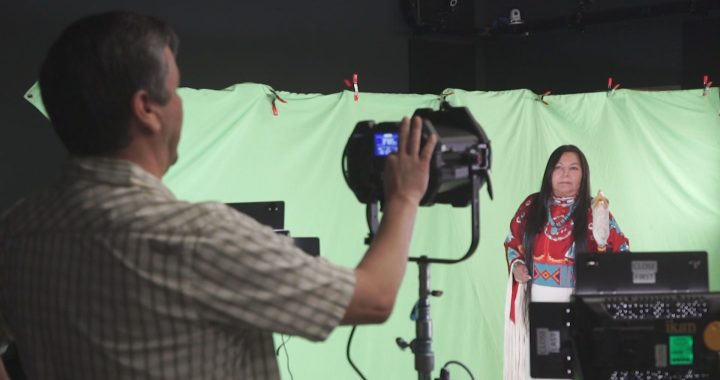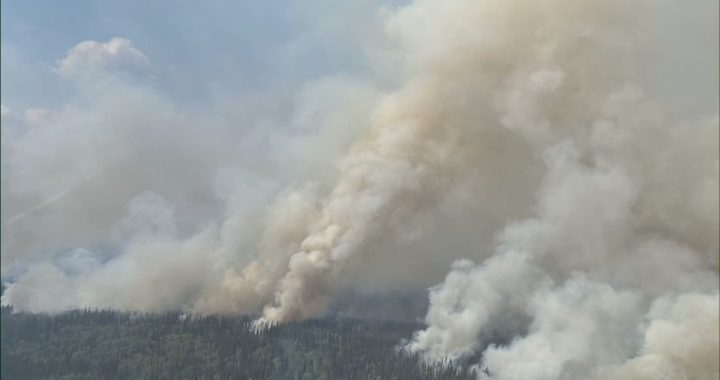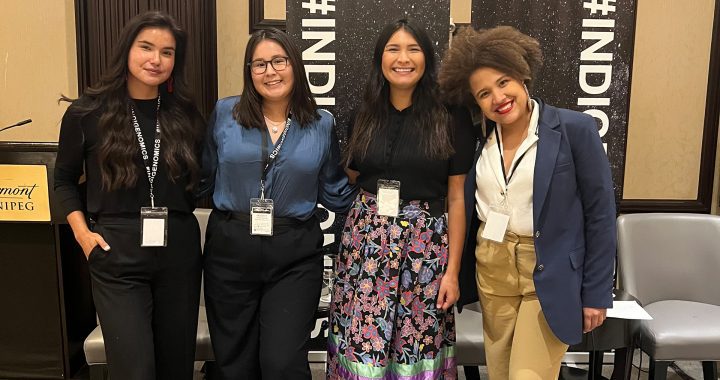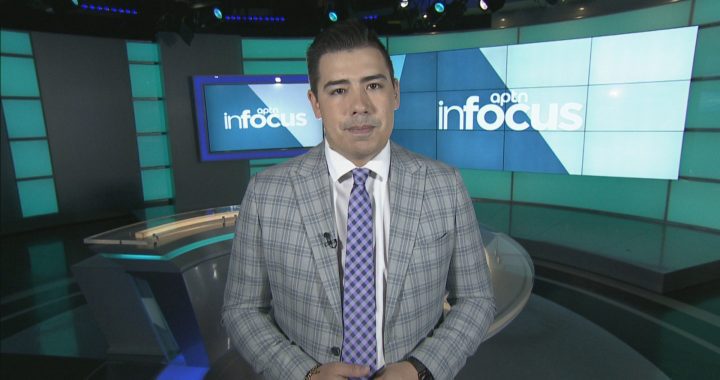InFocus
The election of the National Chief of the Assembly of First Nations (AFN) is two months away but does it really matter who wins?
Lawyer Rachel Ann Snow said that the AFN needs to spend more time listening to the grassroots.
“All we see are opulent meetings in places the grassroots can’t afford to get in,” she said. “And there’s discussions happening that are relevant to our future and to our children.”
The upcoming election and the relevancy of the AFN were put InFocus on Wednesday with host Dennis Ward.
All of the declared candidates were invited on the show.
In the end, only Russ Diabo was able to participate in the discussion.
Sheila North declined APTN’s invitation, and current National Chief Perry Bellegarde said he was unavailable.
Candidate Miles Richardson confirmed his attendance but did not show up for the discussion.
Diabo was joined by former national chief candidate and lawyer Pam Palmater, former Assembly of Manitoba Chiefs Grand Chief Derek Nepinak, Rachel Ann Snow and Executive Producer of APTN Investigates Paul Barnsley.
Nepinak believes the AFN remains relevant.
“I think in it’s best form, it’s facilitating dialogue and it’s advocating and I think in it’s very worst it’s making deals behind closed doors that are impacting the lives of people everyday.”
Nearly all of the AFN’s funding comes from federal and provincial funding.
Being critical of government policy typically leads to that funding drying up.
“When I was grand chief and we spoke out against the Harper government and against policies that were being driven by Michael Wernick, at the time as the leader of the department, we received an 85 per cent funding cut to our core funding” says Nepinak.
“We had lost our utility as an agent of federal policy in Ottawa.”
After Harper left office, Wernick was appointed Clerk of the Privy Council by current Prime Minister Justin Trudeau.
Diabo believes losing government funding means the AFN is doing its job.
“When you see the Assembly of First Nations getting a lot of money, you know they’re not doing their job. It’s when they’re down to a lean and mean machine of just having 2, 3,4 million, to just basically operate then that shows they’re doing their job of advocating,” says Diabo.
Palmater says a true test of the usefulness of the AFN would be to not have any federal or provincial funding at all.
“Let the funding come from the First Nations who believe you are making a critical difference, who you are adding something to their community and we would see how well or how much of a lack there would be to AFN funding,” she said.
“I think if that were the choice right now you would see that it probably wouldn’t be an organization.”
Nepinak says it’s not just the AFN that is reliant on government funding but political organizations run by Indigenous people across the country.
“These are sponsored agencies of the federal government,” he said. “The money comes from the top down not the bottom up. And as Pam said if we were funding it from the bottom up we would see where the priorities are because they’ll put their money where the priorities are.”












Never mind the individuals, small First nations bands who get little funding cannot afford to send their Chiefs and Councils to the AFN meetings unless they are close by. It also costs to attend the meetings. That is not how it used to be, I agree that these are meetings only for the organizations that have money to send people. Governments, universities and others attend. The grass roots people are completely left out.
Never mind the individuals, small First nations bands who get little funding cannot afford to send their Chiefs and Councils to the AFN meetings unless they are close by. It also costs to attend the meetings. That is not how it used to be, I agree that these are meetings only for the organizations that have money to send people. Governments, universities and others attend. The grass roots people are completely left out.
Yes, I agree with Pam.
Yes, I agree with Pam.